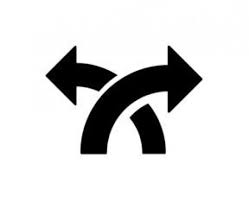|
(2017
premidterm assignment) Model Student Pre-midterm answers 2017 (Index) Essay 2: Propose topic for research and reading essay on personal / professional topic of your choice |
 |
Greg Bellomy
10/15/2017
Wells and Butler talk Economics
Authors of literature depicting the future are forced to draw upon their
conceptions of the present and to imagine where it is going. Often, these
concepts are developed through the process of magnifying perceived crises in the
authorís time. When one considers the difficulties associated with making a
living as a writer, the prevalence of concern about future economies makes
sense. Both Parable of the Sower and The Time Machine are their
own types of warning tales about future economies, though Butler and Wells
differ in their concerns and visions. By contrasting the authorsí worries
regarding their futures and applying an historicist perspective to the readings,
it is possible to gain some understanding assumptions that are built into the
texts.
Parable was written by Octavia Butler during the early 1990s,
during the height of the crack epidemic. This is highlighted through the lack of
social cohesion, unreliability of government, and general hardship for normal
people. The general state of hardship included shortages of jobs, food, potable
water, and safety. In hopes of protecting their properties and families, pockets
of neighborhoods walled themselves in from each other. Despite these apocalyptic
developments, the government manages to continue as an ineffective shell which
is powerless to help its own people. This is a contrast to the fact that the
government still manages to put humans on Mars, the merits of which are debated
within the book. Another factor which cannot be ignored in Butlerís future
vision is the impact of drought and climate change on the society. Food is so
scarce that the protagonist, Lauren, learns to make a flour out of acorns.
Laurenís supply of acorns is ended when bandits break into her walled community
and flush out its survivors. This is another repeated theme in Parable;
in the process of taking from one another, the people end up destroying their
vital means of production. While some people might find this to be a cynical
assumption about the future, when considered through Butlerís identity and
setting, it might seem more realistic.
 |
 |
 |
